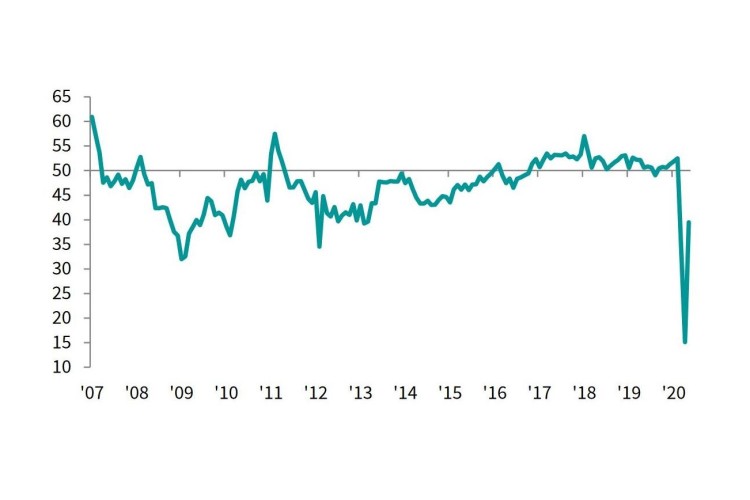The IHS Markit Eurozone Construction Total Activity Index rose to 39.5 in May, up from a record low of 15.1 in April. The latest reading indicated a slower, but still steep fall in construction activity across the eurozone.
Survey data showed Germany and France recorded a third straight month of decreasing construction output. By contrast, Italy posted a marginal rise in construction activity.
Bernard Aw, principal economist at IHS Markit, said: “The eurozone construction sector remained mired in its deepest downturn ever seen during May, according to the latest PMI data. However, the rate of decline eased considerably as restrictions on business operations and workers were relaxed. In fact, Italy posted a mild rise in construction output, though Germany and France still recorded declines, albeit at much slower rates.
"New orders continued to decline, showing the extent to which demand for construction services remained deeply impacted by the Covid-19 pandemic. As a result of falling sales, firms continued to cut back purchasing activity, employment and the use of subcontractors.
"The outlook remained gloomy, with concerns about the longer-term impact of COVID-19 weighing heavily on business sentiment.”
Home building activity across the eurozone fell further in May, though the rate of decline eased considerably from April's record. The downturn in housing construction projects was led by France and Germany. By contrast, Italy posted a rise in home building activity following a two-month period of severe declines.

Work undertaken on commercial construction projects in the eurozone likewise declined further midway through the second quarter. That said, the pace of contraction slowed markedly from a record decrease in April, though still remained steep overall.
The sharpest contraction was recorded in France, followed by Germany. Again, Italy registered growth following a collapse of commercial building activity in April.
Meanwhile, eurozone civil engineering activity fell further in May, extending the current sequence of contractions to 10 months. Overall, the rate of decline was substantial, but notably slower than April's record. National data revealed a decline in civil engineering across the eurozone's three largest economies.
Order books fall sharply but at a slower rate than April's record.
New business received by eurozone construction firms fell substantially further in May, though the rate of decline eased considerably from a survey record set in April. Anecdotal evidence suggested that delays in tenders and suspensions of construction activity amid the Covid-19 pandemic continued to dampen demand.
Got a story? Email news@theconstructionindex.co.uk



